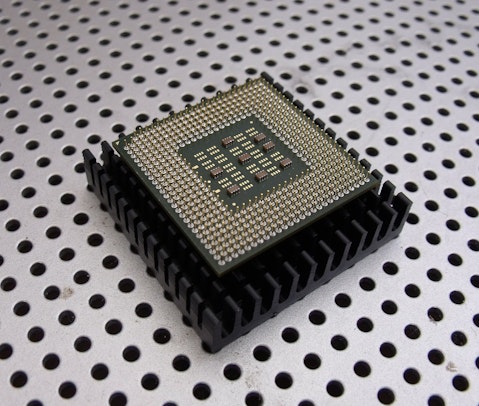In this article, we are going to list the 15 biggest semiconductor companies in the world. Click to skip ahead and jump to the 5 biggest semiconductor companies in the world. Can you imagine life without your phone? Just picture life without electronic devices: no laptop, no iPad, no video games, no appliances, and hospitals will be left with poor medical devices. Semiconductors have become an important part of our lives. And with the rise of artificial intelligence, 5G, and IoT, semiconductors have become the foundation of these technologies and contribute to all areas of the world’s economy.
The semiconductor is located between the conductor and the insulator and is commonly used for the production of electronic chips, computing components, and devices. Semiconductors may be pure elements, such as silicon or germanium, or compounds such as gallium arsenide or cadmium selenide. Semiconductors are key technology enablers that power many of the innovative digital devices we use today. Semiconductors are an important element of electronic devices, enabling advances in communications, computing, healthcare, military systems, transport, and clean energy. You can read more about the 15 largest electronic companies for the application of semiconductors.
The Semiconductor Industry Association (SIA) recently announced that total sales of the global semiconductor industry were $412.1 billion in 2019, a decrease of 12.1% compared to 2018. The semiconductor industry has already suffered significant losses due to COVID-19. However, the industry is determined to rebound strongly. The global semiconductor market size is expected to reach $726.73 billion by 2027, with a compound annual growth rate (CAGR) of 4.7%.

allstars/Shutterstock.com
The rising usage of high-end technology devices, coupled with minimum electronic prices, is leading to a surge in consumer electronics consumption. The global semiconductor industry is set to return stronger in the next decade due to emerging innovations such as autonomous driving, artificial intelligence (AI), 5G, and the Internet of Things.
In 2019, the US accounted for 47% of the global semiconductor market followed by Korea (19%) and Japan (10%). U.S. exports of semiconductors amounted to $46 billion in 2019, the fifth-highest among U.S. exports of aircraft, refined oil, crude oil, and automobiles. China is the largest importer of semiconductors in the world. The US has repeatedly used semiconductors as a lever against China. Indeed, the US export regime imposed by the Trump administration has prohibited TMSC, which relies heavily on US technology to develop its chip, from working closely with China and Huawei. And while The Wall Street Journal reports that these efforts have put a major strain on both Huawei and SMIC’s ability to source chips, the study indicates that these efforts could backfire on U.S. technology interests. Some US companies will lose points of global share and revenue if the US administration keeps the restriction imposed by Trump.
To give you the most accurate ranking of the biggest semiconductors in the world, we looked up the most recent annual financial statement of the top 15 global semiconductor companies. We ranked these companies by their revenue, market cap, assets, and number of employees as these values help us determine how big a corporation is. Many of the semiconductor companies in our list are also included in the 12 best autonomous vehicle stocks to buy in 2021. Get to know the next semiconductor hot picks to include in your portfolio starting at number 15:
15. NXP Semiconductors (NASDAQ: NXPI)
Revenue: $8.8 billion
Market Cap: $45.33 billion
Assets: $19.5 billion
Number of Employees: 29,400
Headquarters: Eindhoven, Netherlands
NXP Semiconductors provides semiconductors and similar technologies to companies in in-car entertainment, mobile devices, surveillance systems, and more. NXP products are also used in applications for lighting, wireless infrastructure, computing, and identification.




